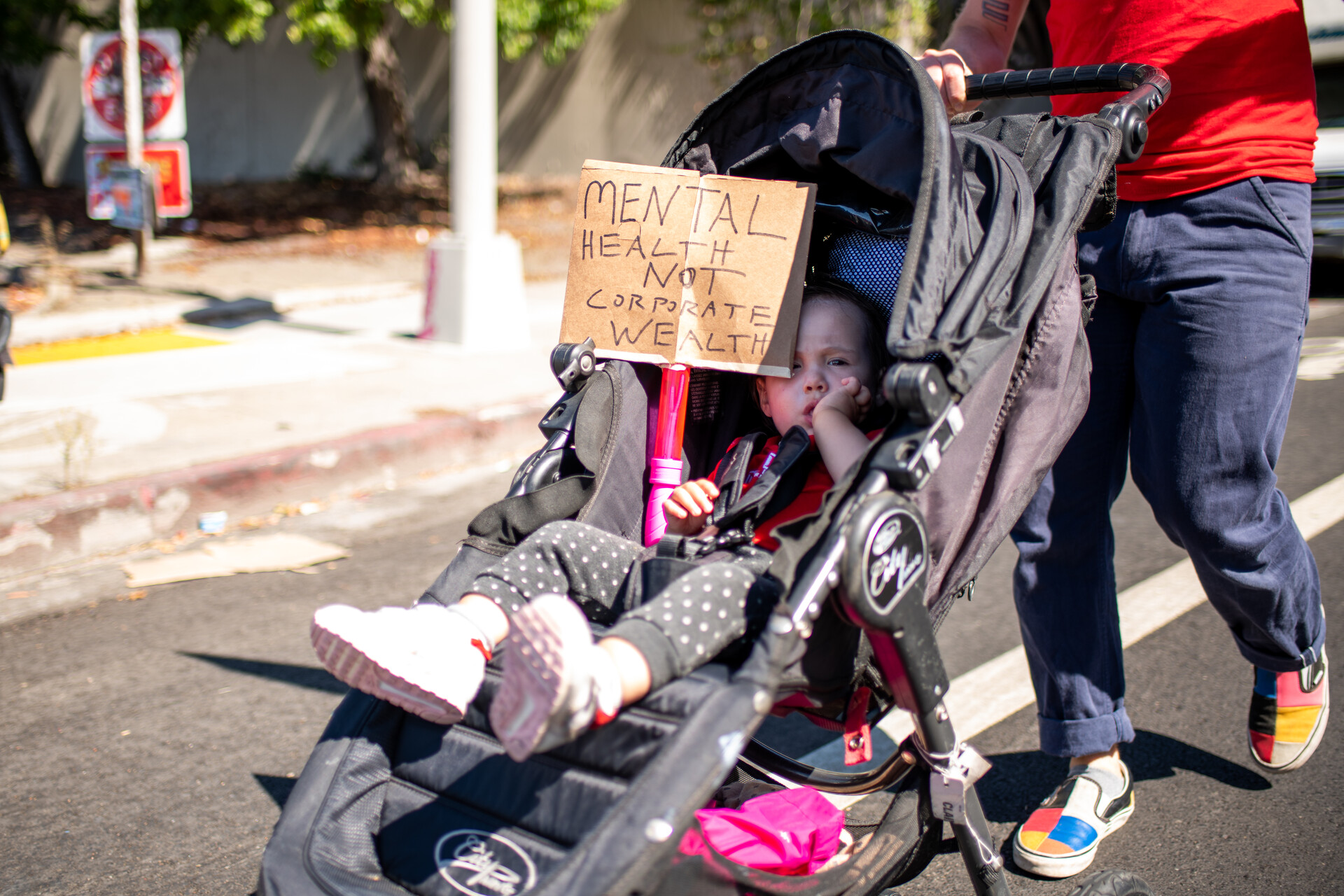However these on strike mentioned the severity of the scarcity is particular to Kaiser, and that burnout and poor working situations are contributing to low retention of current workers, and making it troublesome for the corporate to recruit new ones.
“There is not a scarcity of clinicians. There’s solely a scarcity of clinicians that need to work for Kaiser,” mentioned Marcucci-Morris. “We get into this area to assist folks, and it is arduous to recruit therapists when Kaiser’s status is thought to make folks wait so lengthy for remedy periods. It is actually, actually not moral. And I personally have a handful of colleagues and buddies who’re therapists with time of their schedules who I’ve tried to recruit for Kaiser. However the status is simply so poor.”
It is extra interesting, mentioned these hanging, for certified therapists to work for a non-public follow. “Staff simply do not need to work for Kaiser anymore, and that is the true disaster we’re going through,” mentioned Marcucci-Morris.
The union mentioned the speed at which psychological well being clinicians are leaving Kaiser practically doubled previously 12 months, with 668 clinicians leaving between June 2021 and Might 2022, in comparison with 335 clinicians the earlier 12 months. In a union survey of 200 of these departing clinicians, 85% mentioned they had been leaving as a result of their workload was unsustainable or as a result of they felt they didn’t have sufficient time to finish the work, and 76% mentioned they had been unable to “deal with sufferers according to requirements of care and medical necessity.”
“We have to develop the psychological well being workforce, there is no doubt about that,” California state Senator Scott Wiener informed the KQED Discussion board. “It is usually the case that the scarcity will not be as extreme proper now because the well being plans say … well being plans can take steps to develop their workforce, together with paying higher, offering higher reimbursements to personal suppliers, and people are investments that they need to be making that they haven’t made.”
“I do not suppose it is the case that they will simply throw up their fingers and say, now we have some challenges with the workforce, and so subsequently, we’ll make folks wait three months,” he added. “Now we have actual shortages of bodily well being care suppliers, however we do not tolerate round bodily well being what now we have lengthy tolerated round psychological well being, which is successfully denying folks entry to lifesaving care.”

Has California handed any current legal guidelines to handle this scarcity?
Senate Invoice 221, which handed in 2021 and went into impact July 1, 2022, mentioned that “well being plans, together with Kaiser, should present well timed entry to psychological well being and dependancy remedy,” Senator Wiener informed Discussion board. “And meaning a immediate first go to.”
The legislation codifies current rules from the Division of Managed Well being Care and the Division of Insurance coverage that require a well being care service plan or an insurer to make sure that “for an enrollee requesting a non-urgent appointment with a non-physician psychological well being care supplier . .. appointments are supplied inside 10 enterprise days of the request for an appointment.” Comply with-up visits must occur inside two weeks, added Wiener.
Senate Invoice 858, which just lately handed on the California State Meeting ground and can now transfer to Gov. Gavin Newsom’s desk, would replace the way in which medical insurance corporations are fined for violations, one thing that hasn’t been up to date and even adjusted for inflation because the Nineteen Seventies, mentioned Wiener. Presently, the utmost tremendous potential stands at $2,500 per violation; the invoice, if handed, would improve that quantity to $25,000.
“We expect that can create a a lot bigger incentive to truly observe the legislation and supply folks with well timed and acceptable entry to well being care,” he mentioned.
What precisely are the strikers asking for? What is the present standing of negotiations?
In negotiations that led as much as the strike, the Nationwide Union of Healthcare Staff accepted Kaiser’s wage-increase provide. However the union held quick on its demand that 9 hours per week — up from the present six hours — be allotted for administrative work. Kaiser rejected that demand, arguing it will not depart enough time to see sufferers. The corporate’s counteroffer, of an extra 1.2 hours for that work, was flatly rejected.
“We would not be hanging proper now if cash was the first [issue],” mentioned Marcucci-Morris, pointing to burnout, retention points and poor morale — in addition to what the union describes as the dearth of a transparent plan for the way the corporate goes to fulfill the necessities laid out by SB 221.
“It is not going to repair the issues to purchase the therapists out and pay us extra,” she mentioned. “What good is extra pay whenever you’re drowning and may’t come up for air?”
How is the strike affecting sufferers in want of care?
Kaiser is legally obligated to proceed offering take care of its members throughout a labor strike.
